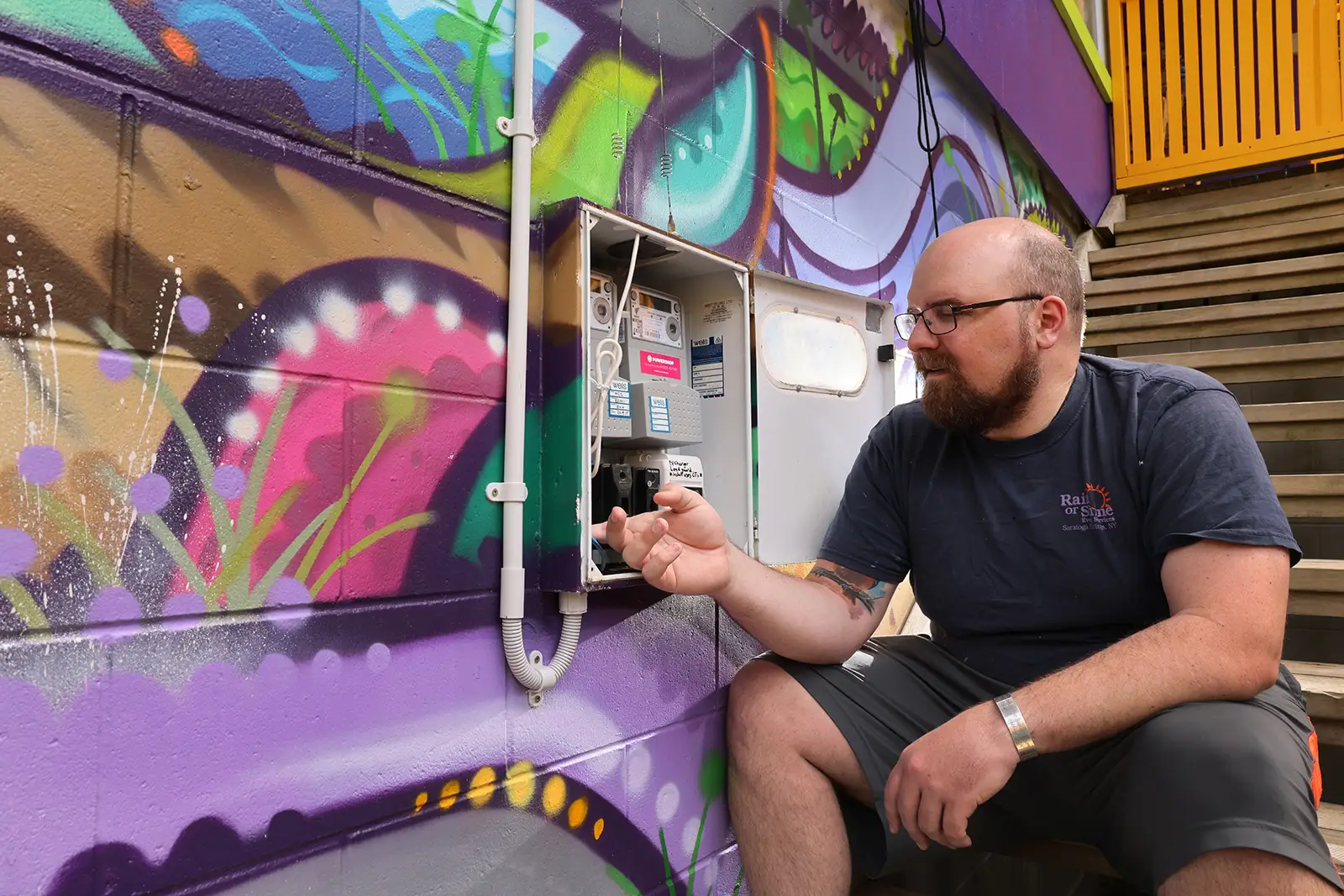Wellington couple Tom and Nadine have recently replaced all their gas appliances with electric alternatives to cut their home's carbon emissions and save on bills in the long run. All up, that's included electrifying the way they heat water, warm their home, and cook.
When they bought their home five years ago, it had been built to be dependent on gas, with continuous flow gas hot water, a flued gas heater in the lounge, and a gas hob for cooking. The couple worked out that using gas was resulting in over two tonnes of carbon emissions each year for a family of three. And while the cost of the gas itself was pretty low, the connection charges were about $1 a day.
"From a financial perspective, it didn't make sense for us to switch just one appliance over to electricity," says Tom. "If we wanted to reduce our energy bills, we would need to switch all of the appliances over at once. That's why, when our gas heater needed replacing last year, we took the plunge and decided to go off gas altogether."
Making the switch
As part of their transition away from gas, Tom and Nadine installed a new hot water heat pump, a heat pump in their lounge/kitchen, and an induction stovetop.
The process took about six months from start to finish, with the recent lockdown slowing down the installation a little. The couple did a lot of shopping around for the best options and pricing, reading up on the tech, and buying equipment up front from a few different suppliers.
"Some of the tradies weren't too familiar with the newer tech stuff like the hot water heat pump, but everything else was pretty breezy," says Tom. "It was actually the first hot water heat pump our tradie had done, but what's great is that installing it helped him learn those skills, which makes it easier for him to do the job for others."
While the hot water heat pump required a bit of upskilling, it was well worth it for the couple because it uses around 75% less energy than a traditional hot water cylinder. Installing the induction cooktop and heat pump was relatively straightforward because they're much more common.
"There's not really one destination for information about switching from gas, so the best resource we had was people," says Tom. "We used a local Wellington supplier for the hot water heat pump and they were invaluable."

Running the numbers
Before they began, Tom and Nadine ran the numbers on what they were spending on gas and what they’d be spending on electricity, and the savings worked out at around $65 per month, or $782 over a year.
The total cost of getting all the work done was around $20,000, a lot of which was upgrades to the house.
“It was a big investment, but it’s important to take into account the reduction in energy bills and the fact that we would have had to buy new appliances anyway, as ours were getting to the point where they needed replacing,” says Nadine.
“If you’re building your own home, one thing we think is important is building in the capability to go electric, so it’s easier to switch in the future. Most of the cost at our house was in electrical and plumbing upgrades, which could have been avoided if the house had been future proofed.
“The annual return (before tax) is around 5% on the full cost and if all the other non-financial factors are included, we think doing this can make a lot of sense for people who are in a position to make this level of investment.”
Tips for others
Switching your home from gas to electric might not be for everyone, but if it is something you're considering, Tom and Nadine have some advice.
"It's really important to crunch the numbers on how much carbon is created from different sources in your home, like cooking, heating, hot water, or travel," says Nadine.
"We took our electricity and natural gas bills, worked out the difference between gas use in summer and winter to figure out how much gas we were using for different things like cooking or heating, and then calculated emissions based on Ministry for the Environment’s emissions factors. But it’s really going to depend on your personal situation what is the best way you can reduce emissions, and costs.
"And if you have children or people with respiratory issues in your home, getting off a gas stove is also a good thing to do for health. It has a real double benefit — climate and health."
Tom's advice is "Just jump in. You don't have to know everything. Certainly for us, getting off gas took a bit more thinking, but it's definitely something that can be done."
Related stories
-
Green loans for your home
Discounted finance options as low as 0% are available to help you transition your home or car to be more energy efficient.
-
Is your power plan right for you?
Power bills take up a big chunk of household expenses, but switching to a better plan could save you money.
-
Your checklist for smarter appliance shopping
By making clever appliance purchases, you can lower your cost of living while reducing your household emissions.
